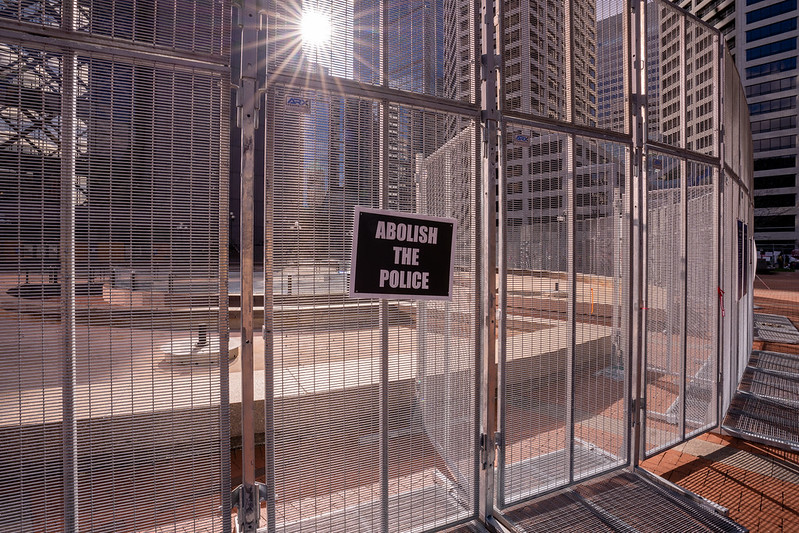
Photograph Source: Chad Davis – CC BY 2.0
It is Tuesday, April 20th, 4:10 pm CT. Hennepin County Courthouse, Minneapolis. The doors open. Judge Peter Cahill gets seated and speaks, “Members of the Jury, I understand you have a verdict.”
Former police officer Derek Chauvin’s eyes are darting.
The judge reads the verdict. Second-degree unintentional murder, third-degree murder, and second-degree manslaughter: Guilty on all counts.
One by one the twelve jurors confirm their true and correct verdicts. Yes. Yes. Yes…
The judge thanks the jury members for their “heavy duty” jury service. All rise. Handcuffed, Derek Chauvin is led out. George Floyd remains six-feet under. His daughter is still without her father.
The court, adjourned. For now.
One is found guilty; countless simply walk away free. What is needed now as much as ever is more than a token verdict. The true verdict is one that would convict the whole system of being guilty: criminal justice, “prison-industrial complex,” and policing, as well as housing, healthcare, education, employment, electoral, and beyond. Since the birth of the nation until now—through slavery, Reconstruction, Jim Crow, Civil Rights, even with Barack Obama in the White House, even with Kamala Harris as Vice President. Guilty for centuries of racial and ethnic discrimination, oppression, and violence. For presenting the ideals of equality, freedom, democracy, the American Dream, yet not living up to them. For murders, beatings, betrayals. For the hate, hurt, horror, humiliation. For incessant terror and perpetual trauma. For putting the Black lives on trial again and again. Guilty on all counts.
And although even an all-encompassing verdict as such cannot right the wrongs, bring back the dead, recover the unfathomable losses, restore the love, hope and faith in communities that have suffered profoundly for so long, at least it can be a step toward accountability and moral reckoning. A step toward humility and thus some form of collective healing.
Reforms are necessary and the need is urgent without a doubt, but the work goes beyond defunding the police, it goes beyond legislation—all the busy work of lobbying, fundraising, polling, proposing, passing bills. It is going to require more to undo the deeply ingrained racism and its legacy of violence in this country, from the institutions to the individual psyches, to lift the repression, forgo the posture of exceptionalism, annul the learned ignorance, and witness the reality at last no matter how brutal it is.
There are countless witnesses to call to the stand, countless testimonies to listen to. Endless evidence.
As James Baldwin once said in a speech at Howard University: “We must tell the truth till we can no longer bear it.”
The trial will now resume.